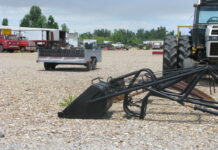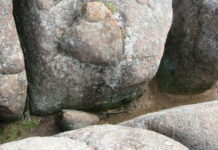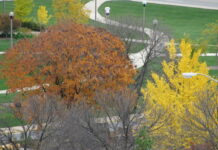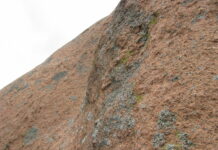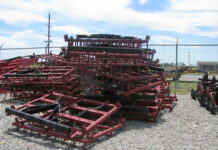Photo credit: DiasporaEngager (www.DiasporaEngager.com).
JNS.org – What do you yearn for? For Shlomo Mansour, it was not a flashy career or riches, just a peaceful and happy life.
In 1941 Iraqi Muslims, in alliance with the Nazis, launched the Farhud pogrom. The then-leader of the Palestinian Arabs, Amin al-Husseini, was in Iraq and deeply involved in the violence. Shlomo was a 3-year-old celebrating Shavuot with his family in Baghdad. In the ensuing massacre, hundreds of Jews were slaughtered and many more were raped and assaulted. Shlomo’s family thankfully survived.
With no desire to wait around for the next pogrom, nor to live in an increasingly antisemitic country, the Mansour family joined over 100,000 other Iraqi Jews and moved to Israel. Jews were one-third of the population of Baghdad on the eve of the Farhud but, within a decade, only a few thousand were left.
Shlomo lived most of his life in the bucolic farming collective of Kissufim, nestled in the Negev desert. For much of the community’s history, the mantra was socialism, with luxuries such as televisions and even disposable diapers considered too bourgeois. People made it their home because they yearned for social and economic equality in a communal setting and to make the desert bloom.
And they did. Established in 1951, the first inhabitants encountered a harsh and unforgiving landscape, a glimpse of which was filmed in 1956. Today, pine forests hug Kissufim, expanded every year on Tu B’Shevat, along with fields of blooming anemones and orchards.
Israelis are relatively familiar with Kissufim. This is not due to the 1,500-year-old archeological sites in the vicinity—complete with Hebrew inscriptions—nor to the 1,700-year-old remains of a church. For many, it is because of the award-winning cult Israeli comedy “Operation Grandma,” based on a true story from director and writer Dror Shaul’s youth in Kissufim. The film even includes a scene with an actor playing the part of Shlomo. Shaul followed this up with his darker but still award-winning film “Sweet Mud,” about his experiences in Kissufim in the 1970s. Topping it all off is Keren Nechmad’s movie “Kissufim.” Filmed on location, it won Best Foreign Film at multiple festivals in 2023.
However, most Israelis are familiar with Kissufim due to the frequent terrorist attacks in the immediate area.
As Shlomo tended chickens and worked in his carpentry shop over the years, he enjoyed the relative tranquility of his life. However, since Israel’s disengagement from the Gaza Strip in 2005, his neighborhood has become subject to increasing violence.
Palestinian terrorist groups frequently broke ceasefires. Tunnels were found in the vicinity, complete with handcuffs and other equipment for taking hostages. Kites with incendiary devices were flown into the fields, burning in the hot dry summers, causing intense smoke and ruining crops. Rocket attacks increased in frequency, and bomb shelters multiplied like mushrooms after the rain.
Residents adapted to this new reality. In recent years, Kissufim began to grow, peaking at more than 300 people. Israelis from all over were drawn to communal living in this beautiful oasis. Its residents never gave up on investing in peace. They took part in various initiatives, including “Another Voice,” aimed at strengthening connections and technology partnerships with both Israeli Bedouins and Palestinians.
This progressive population celebrated Jewish and secular American holidays alike—from Pride Month to Halloween. They hadn’t even had a chance to take down their sukkahs when, on Oct. 7, 2023—some 82 years after Shlomo survived the Farhoud—he encountered people in his neighborhood on a mission, once again, to slaughter Jews.
Kissufim was a microcosm of the horrors unleashed by Hamas throughout the western Negev. Although the village rented land to an IDF base, on the morning of Oct. 7 it, too, was overwhelmed.
Sgt. Ilay Noam Ben Mucha and Sgt. David Mittelman found themselves on guard duty, facing a horde of 50 terrorists. Fighting to the death, they held off the terrorists for 20 minutes, buying crucial time for the other soldiers to prepare.
The terrorists did not stick to military targets. Impersonating IDF soldiers, they searched door to door for civilians. Ordinary citizens, such as high-tech worker Shai Asher, found themselves heroically repelling dozens of Hamas terrorists in firefights lasting hours.
Shlomo turns 86 today. Unfortunately, it is far from a happy day for him. He holds the distinction of being the oldest person held captive by Hamas. After Shlomo was beaten in his home, he was led away in handcuffs in full view of his wife, who miraculously escaped.
Gina Semiatich, 90, was dragged to her living room and shot in the head. She was perhaps the oldest victim of the Oct. 7 massacre. She had lived in Kissufim since making aliyah from Chile in her early 20s.
Reuven Heinik may have been the last civilian to have been attacked by the terrorist invaders. He was murdered on Oct. 9 while tending to Kissufim’s famished cows. He is survived by his wife and three daughters.
The Zaq family were burned to death as they hugged each other in their home. Tom Godo was murdered on Oct. 8 in front of his wife and children, who managed to escape. They had just recently moved to Kissufim. Thai workers, the breadwinners for their families back home, were slaughtered. Even pet dogs were shot to death during the rampage. These are just a few of too many tragic stories.
Survivors endured hearing screams for hours. Many saw their friends and loved ones suffer. More than 50 children remain traumatized. Some of those hiding went days without food, water or contact with the outside world.
Kissufim is where I spent the first few wonderful years of my life. I didn’t know what a bomb shelter was or how to lock a door. At the age of 5, I would bike alone in the dark from my friend’s house across the kibbutz back to my home. Will children ever know those tranquil evenings with the air soaked with the intoxicating blended aroma of manure and pine?
Kissufim for the time being is no more. The survivors are at a hotel by the Dead Sea and are currently in the process of moving to temporary housing in Omer. They have been touched by people all over the world coming together to help them rebuild through donations from helpkissufim.com or fundraising drives held by various Jewish communities in North America, such as Oak Park Temple in Illinois, the Jewish Federation of Cleveland and JNF Canada.
Shlomo’s wife of 60 years, as well as his children and 15 grandchildren, are longing for his return home. Kissufim, which translates in Hebrew to “yearning,” has taken on a whole new meaning for the Mansour family and millions of others around the world.
Among the remains of Shlomo’s home lies his garden, the plants brown and shriveled after five months without Shlomo’s love. A bullet-riddled ceramic survives. The Hebrew inscription reads: “Life is happy here.”
Source of original article: Gilad Skolnick / JNS.org / Opinion – Algemeiner.com (www.algemeiner.com).
The content of this article does not necessarily reflect the views or opinion of Global Diaspora News (www.GlobalDiasporaNews.com).
To submit your press release: (https://www.GlobalDiasporaNews.com/pr).
To advertise on Global Diaspora News: (www.GlobalDiasporaNews.com/ads).
Sign up to Global Diaspora News newsletter (https://www.GlobalDiasporaNews.com/newsletter/) to start receiving updates and opportunities directly in your email inbox for free.









